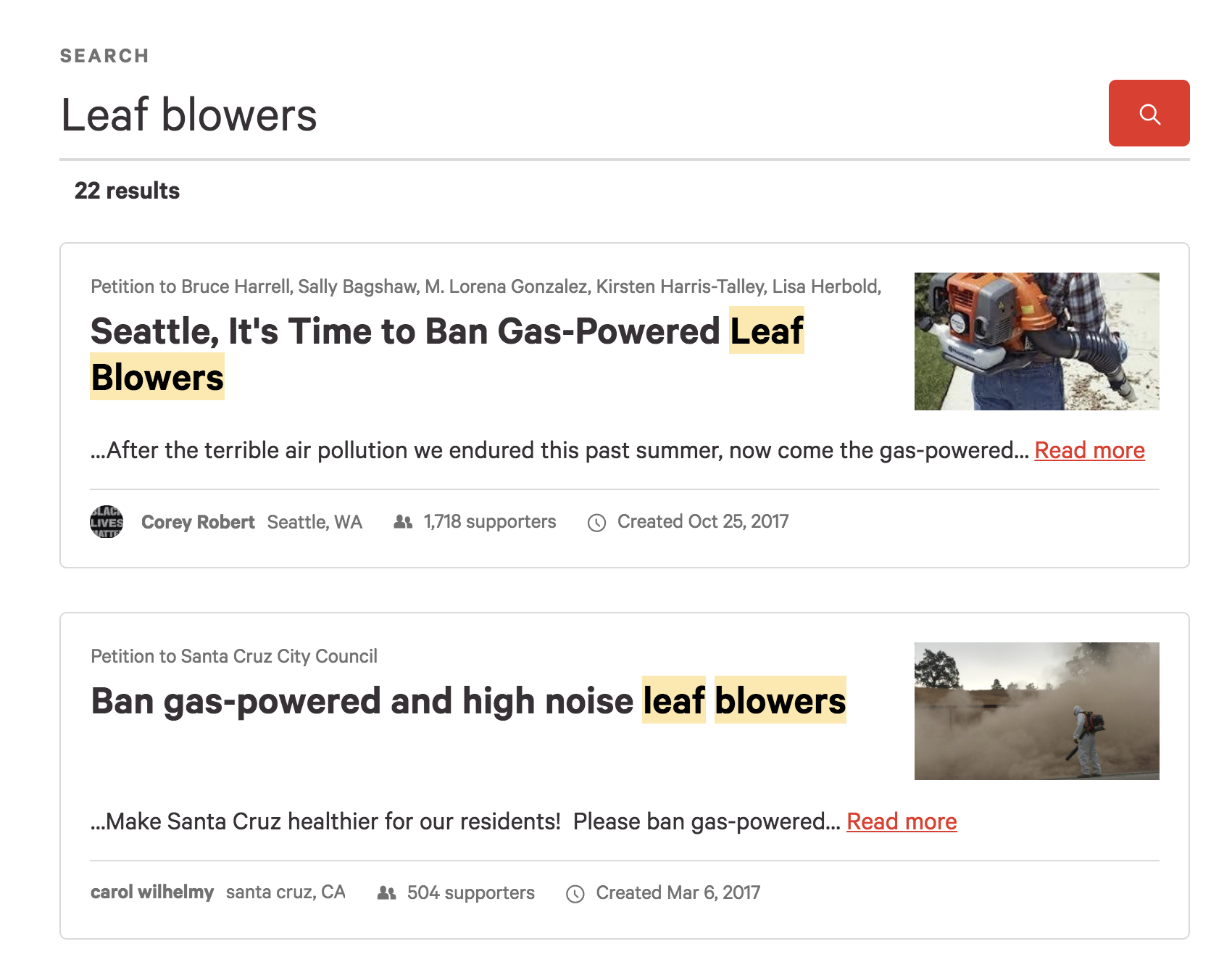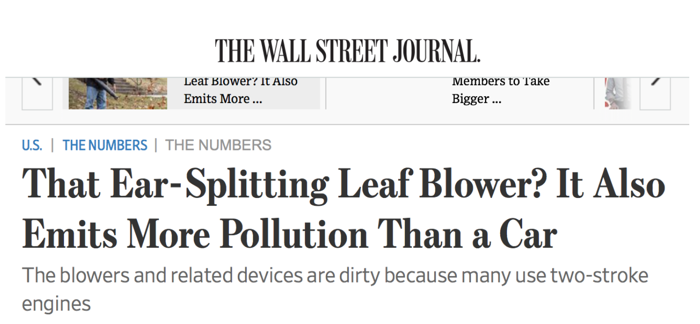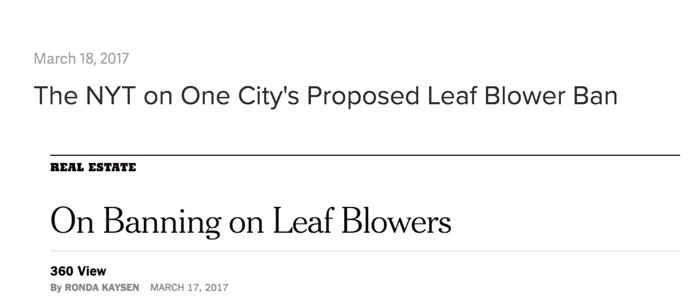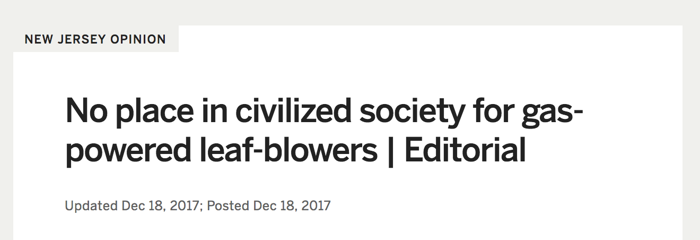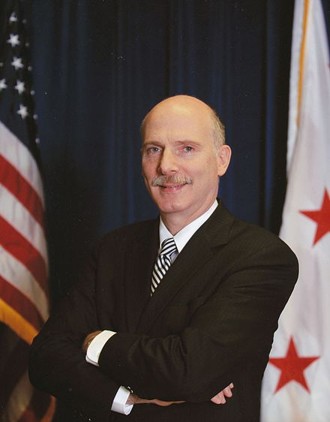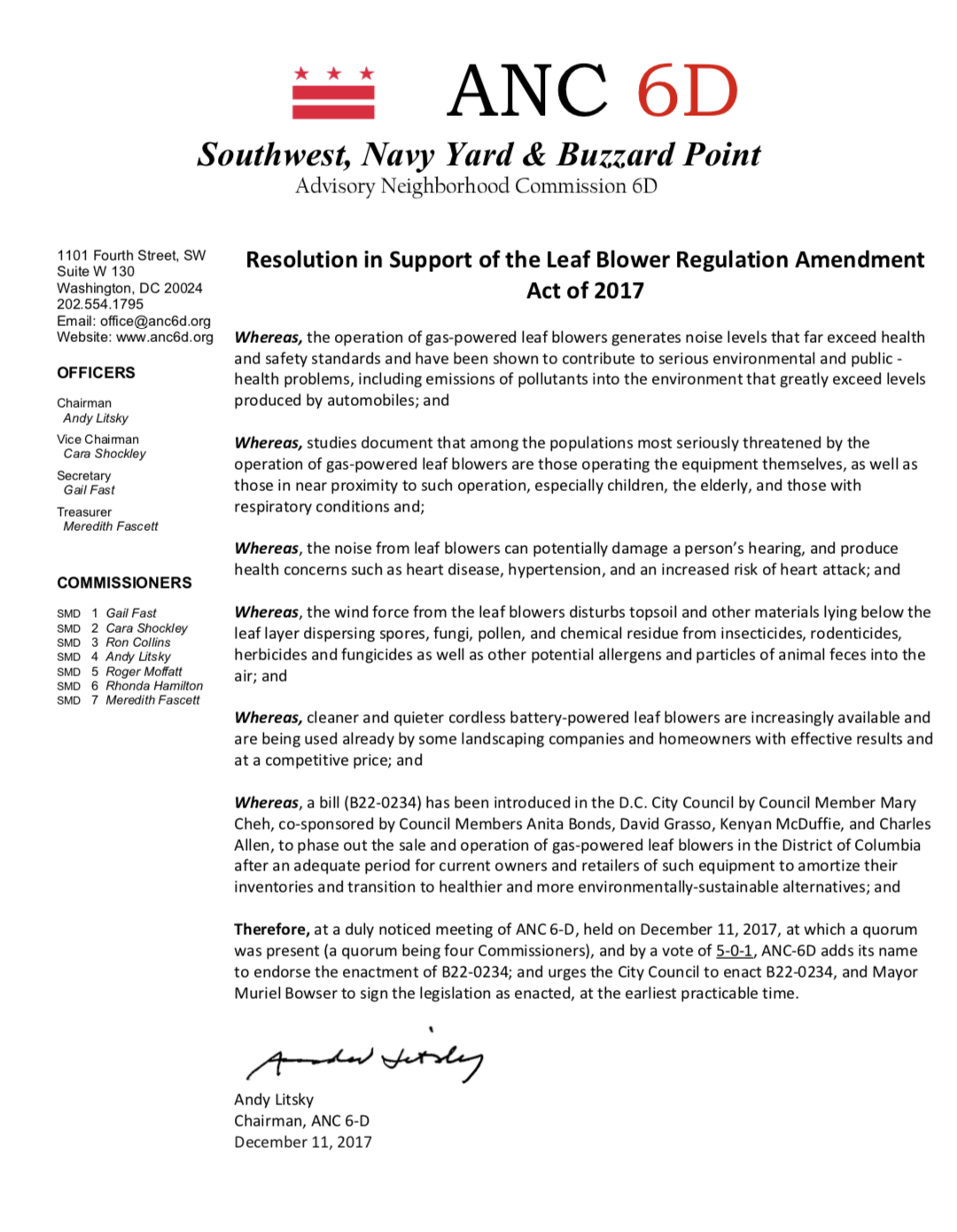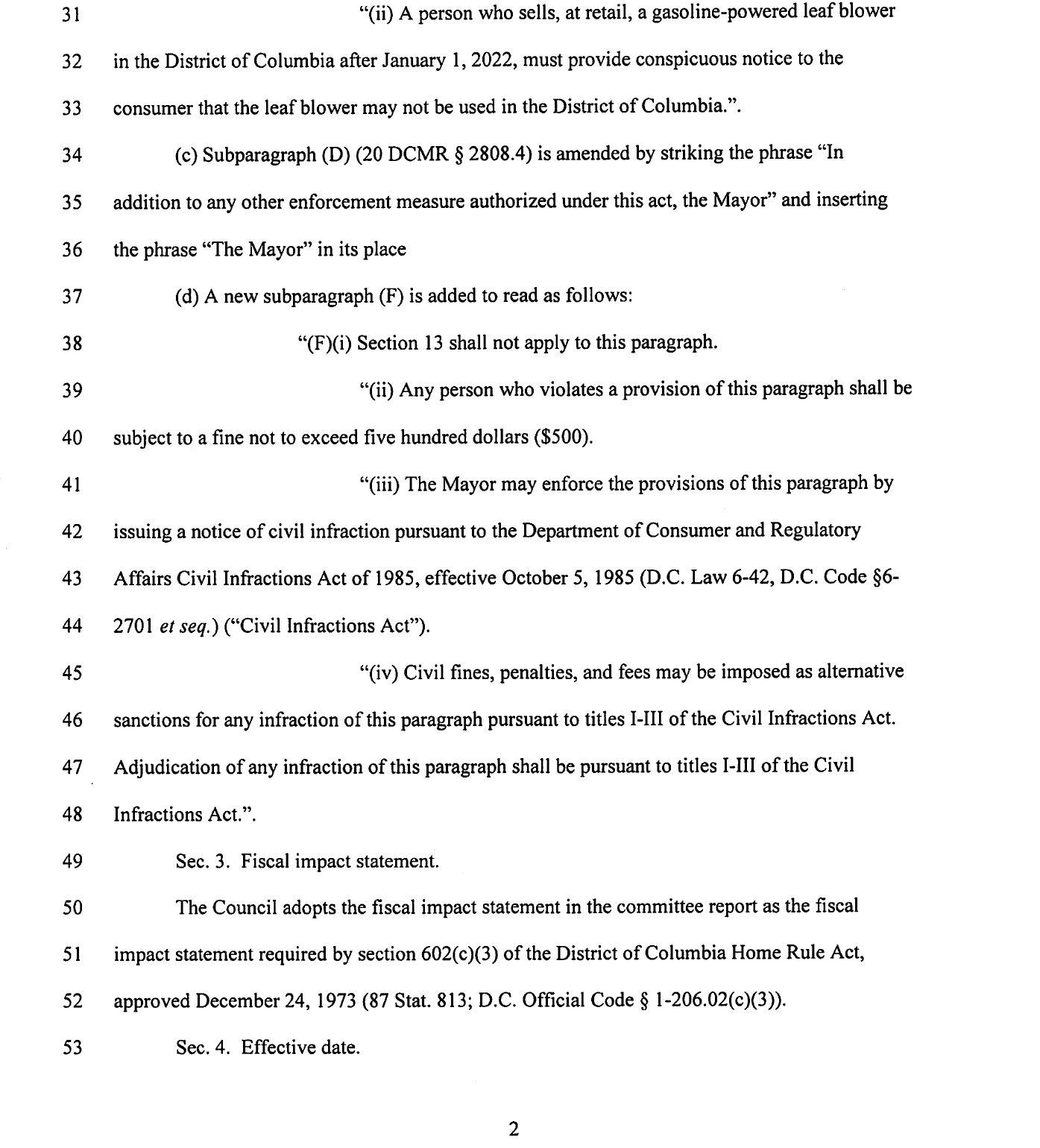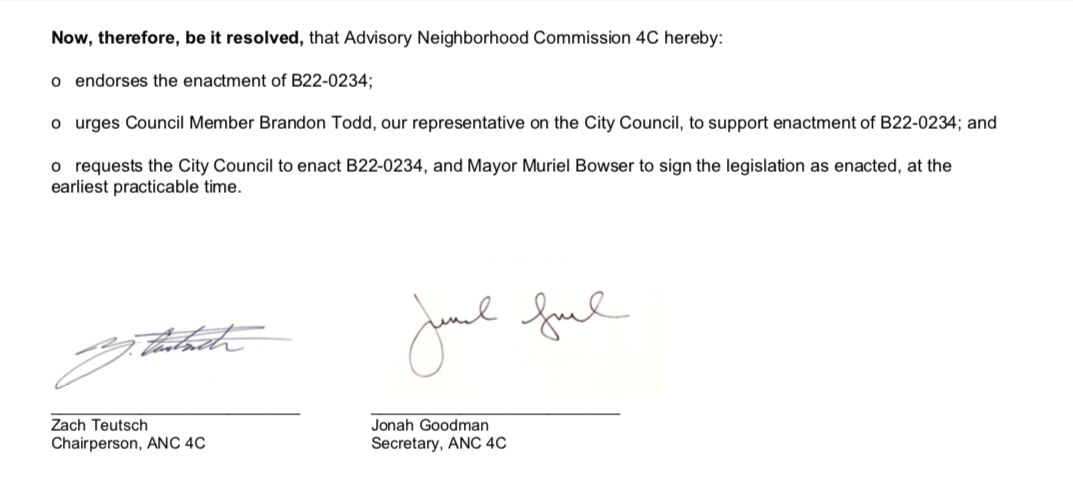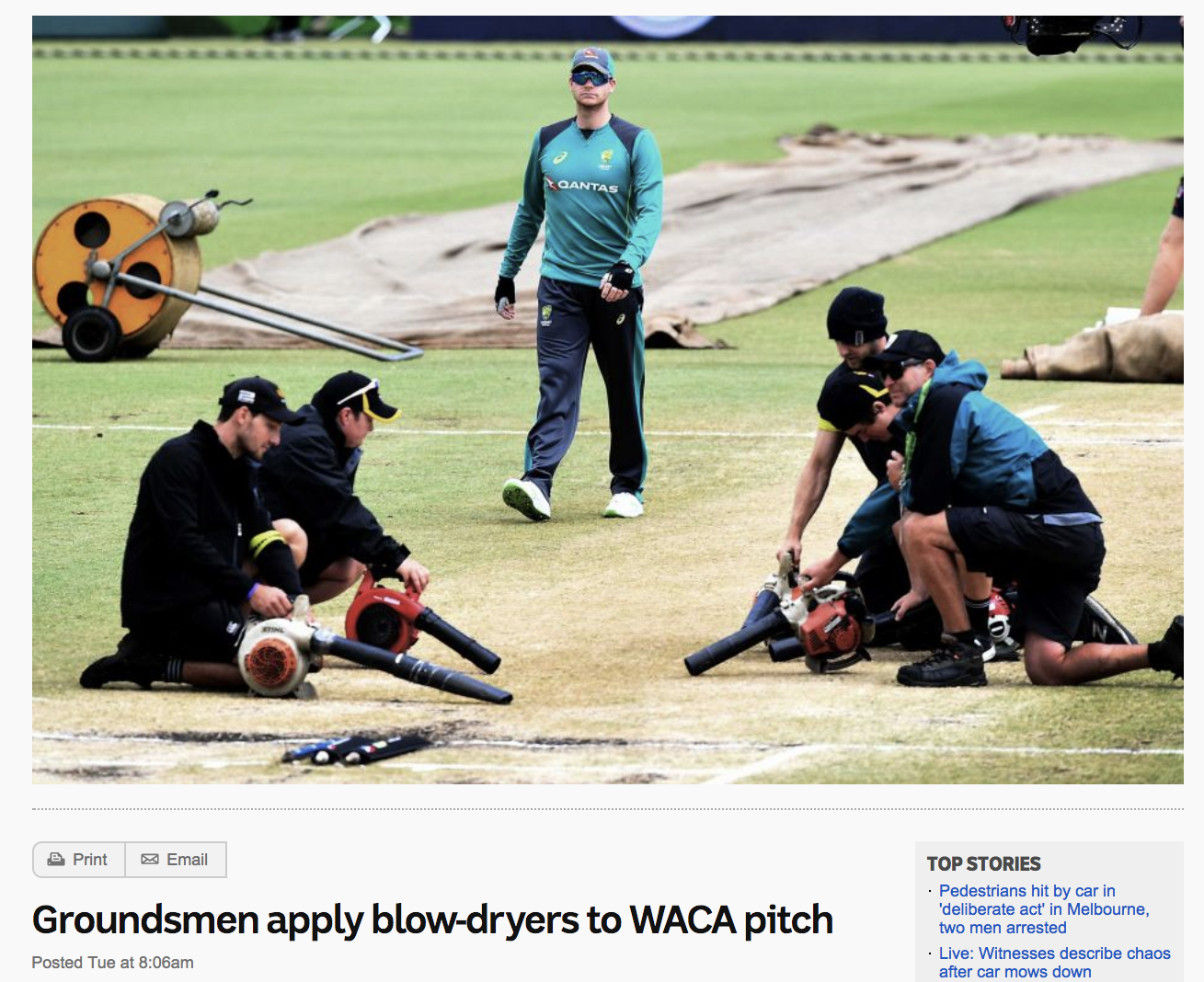Most of the discussion and data on this site concern the less-publicized and often under-appreciated problems arising from use of primitive two-stroke gas-powered leaf blowers and other lawn equipment. These include their grossly polluting nature; the long-term hearing damage and other health risks they impose on the workers who use them; the fine-particulate pollution they create for surrounding neighborhoods; and their simple obsolescence in the face of better alternatives.
But the most obvious drawback of leaf blowers in particular is their exceptional noisiness. Last month a paper in a public-health journal explained why some of the acoustic qualities of leaf blower noise make it spread over so great a distance, and allow it to penetrate walls and windows that block out most other sounds.
And an article from 2010 in The Sun magazine offers a fascinating perspective on the larger questions of noise and quiet in modern life. The article, which is an interview by Leslee Goodman with the "acoustic ecologist" Gordon Hempton, whose speciality is the environmental, physiological, and social effect of increasing ambient noise.
The whole article is very much worth reading. Two sample passages:
Goodman: Before we were urbanized, we needed to be able to hear the snap of a twig in the woods, because it might mean a predator was approaching. Now our hearing brings us mostly unwanted noise, so we walk around with iPods in our ears or with the radio blasting in our cars. We don’t want to hear our environment.
Hempton: Yes, many people use their iPods to avoid hearing the noise pollution all around them. Our ancestors took quiet for granted; they never imagined that we’d lose it. Now we must recognize that we’ve largely lost quiet, even in our most pristine, natural places. But we can still choose to value quiet more as a culture.
Goodman: What would you say to someone who, rather than visiting silence in nature, simply puts on noise-canceling headphones in his or her loft apartment and listens to a recording of a natural soundscape?
Hempton: I would say that real listening is about being where you are. We escape our surroundings by putting on sounds that help us feel as if we were someplace else, but studies have shown that masking stressful noise is not a remedy. If you’re in an unhealthy place, you shouldn’t forget it.
And:
Goodman: What are the health benefits of quiet?
Hempton: Virtually all of the research that’s been done — about five thousand articles — has been on the damaging effects of noise. There’s very little research on the effects of quiet, partly because there’s so little quiet available.
What has been done suggests that quiet helps people relax, makes them more willing to help others, and enables them to do better on tests and to get a good night’s sleep. Research with children who have attention-deficit (hyperactivity) disorder shows that experiencing quiet in nature is as effective for them as medication.
Goodman: What are some steps the average person can take to create less noise and to find silence?
Hempton: First of all, listen. Become more aware. Second, protect your hearing. The most readily available hearing protection is your fingers, but people like to have their hands free, so I recommend earplugs. Foam earplugs are inexpensive and can be used several times....
Third, speak out for your right to quiet. Too often people believe there’s nothing they can do about noise — it’s part of the community they live in — but it’s important to let people who are creating loud noise know how it’s affecting you. Tell your noisy neighbors the ways in which their noise is decreasing your quality of life, and let them know what you are doing to reduce your own noise making.
Goodman: I think people try to tune out offending noise because they want to avoid conflict with others.
Hempton: We’re living in a world where we’re sharing resources, and one of the most shared is the acoustic environment — even more so than the visual environment. And yet there are few codes that affect the acoustic characteristics of a community. Noise-abatement walls along interstates reduce noise very little. The issue of noise pollution could unify communities.

